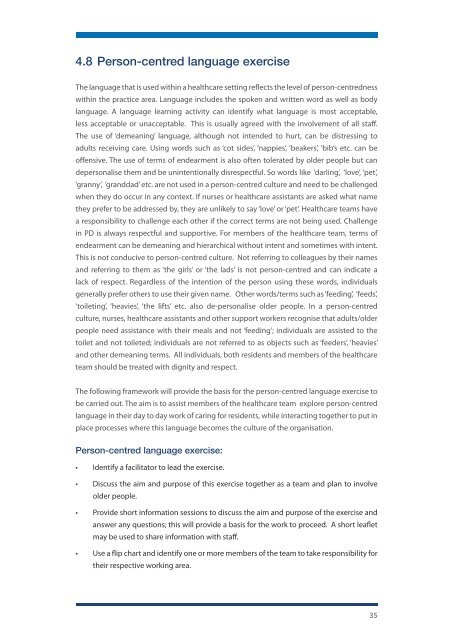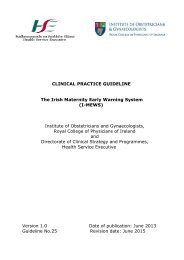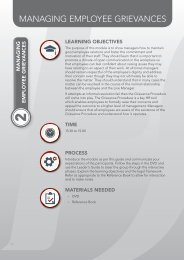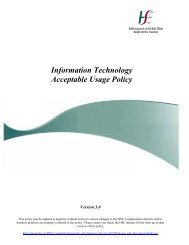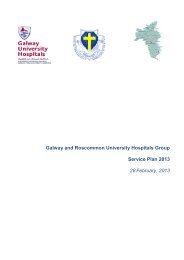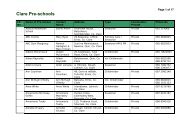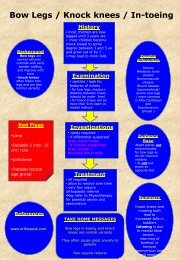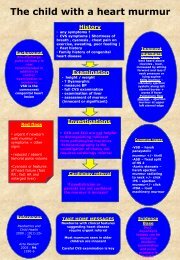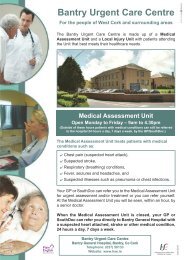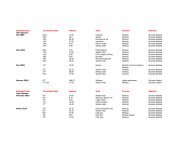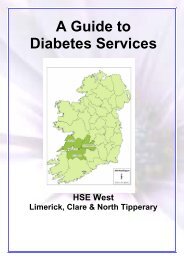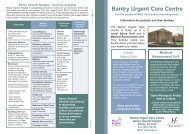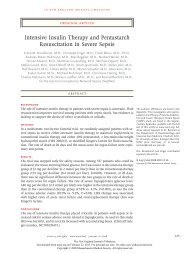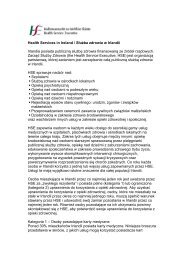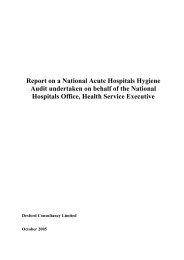Enhancing Care for Older People - Health Service Executive
Enhancing Care for Older People - Health Service Executive
Enhancing Care for Older People - Health Service Executive
Create successful ePaper yourself
Turn your PDF publications into a flip-book with our unique Google optimized e-Paper software.
4.8 Person-centred language exercise<br />
The language that is used within a healthcare setting reflects the level of person-centredness<br />
within the practice area. Language includes the spoken and written word as well as body<br />
language. A language learning activity can identify what language is most acceptable,<br />
less acceptable or unacceptable. This is usually agreed with the involvement of all staff.<br />
The use of ‘demeaning’ language, although not intended to hurt, can be distressing to<br />
adults receiving care. Using words such as ‘cot sides’, ‘nappies’, ‘beakers’, ‘bib’s etc. can be<br />
offensive. The use of terms of endearment is also often tolerated by older people but can<br />
depersonalise them and be unintentionally disrespectful. So words like ‘darling’, ‘love’, ’pet’,<br />
‘granny’, ‘granddad’ etc. are not used in a person-centred culture and need to be challenged<br />
when they do occur in any context. If nurses or healthcare assistants are asked what name<br />
they prefer to be addressed by, they are unlikely to say ‘love’ or ‘pet’. <strong>Health</strong>care teams have<br />
a responsibility to challenge each other if the correct terms are not being used. Challenge<br />
in PD is always respectful and supportive. For members of the healthcare team, terms of<br />
endearment can be demeaning and hierarchical without intent and sometimes with intent.<br />
This is not conducive to person-centred culture. Not referring to colleagues by their names<br />
and referring to them as ‘the girls’ or ‘the lads’ is not person-centred and can indicate a<br />
lack of respect. Regardless of the intention of the person using these words, individuals<br />
generally prefer others to use their given name. Other words/terms such as ‘feeding’, ‘feeds’,<br />
‘toileting’, ‘heavies’, ‘the lifts’ etc. also de-personalise older people. In a person-centred<br />
culture, nurses, healthcare assistants and other support workers recognise that adults/older<br />
people need assistance with their meals and not ‘feeding’; individuals are assisted to the<br />
toilet and not toileted; individuals are not referred to as objects such as ‘feeders’, ‘heavies’<br />
and other demeaning terms. All individuals, both residents and members of the healthcare<br />
team should be treated with dignity and respect.<br />
The following framework will provide the basis <strong>for</strong> the person-centred language exercise to<br />
be carried out. The aim is to assist members of the healthcare team explore person-centred<br />
language in their day to day work of caring <strong>for</strong> residents, while interacting together to put in<br />
place processes where this language becomes the culture of the organisation.<br />
Person-centred language exercise:<br />
• Identify a facilitator to lead the exercise.<br />
• Discuss the aim and purpose of this exercise together as a team and plan to involve<br />
older people.<br />
• Provide short in<strong>for</strong>mation sessions to discuss the aim and purpose of the exercise and<br />
answer any questions; this will provide a basis <strong>for</strong> the work to proceed. A short leaflet<br />
may be used to share in<strong>for</strong>mation with staff.<br />
• Use a flip chart and identify one or more members of the team to take responsibility <strong>for</strong><br />
their respective working area.<br />
35


